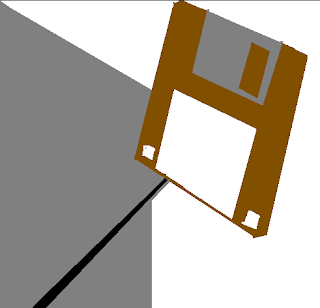Couple of notes on beer making,
Short method.
Sanitation is key. If you have an autoclave, sterilize your tools ahead of time. Otherwise, wash everything with an iodine solution or, if there are no other options, ethanol. Contamination is your enemy. Everything must be clean. Boil the handkerchiefs, rubber bands, sample jars, and lids.
1. Grind up your 'grains' (but not so much that it becomes powder).
2. Place your 'grains' in coffee pot (not the filter basket, the carafe).
3. Run 2 cups of clean water through coffee maker and let it sit on the hot plate for an hour. This releases all the good chemicals from you 'grains' and creates a fluid called wort.
4. Strain the wort through the coffee filter and place the filter full of 'grain' into the filter basket. Add the 'malt' to the filter basket. Pour the strained liquid back into coffee maker and add 1 cup of water.
5. Run the wort through the coffee maker 5 times, each time adding 1 cup of water.
6. Pour the wort into the saucepan and boil for 45 minutes. Two minutes before boiling is done, add the "hops".
7. Carefully pour the wort into the canning jars.
8. Let the wort cool to between 60 and 70 F. Once it is cool enough to touch the outside of the jars without burning, pitch the Bakers' Yeast into the mixture.
9. Seal jar with a handkerchief and rubber band over the mouth, and let sit for 3 to 5 days.
10. And table spoon of sugar to the jar and seal with the lids, making sure they're air tight.
11. Store in a cool, dark place where it will not be disturbed for a week.
Results
A cool, smooth brew, flavored with whatever
Longer method.
Notice: Almost done: just have to add some pictures.
We have made wine before, but never made beer. To be honest, I detest the taste of beer. We set out to make something that could be palatable by all. We have made several departures from the regular beer making method. We wanted to use what we had on hand. such things as the traditional hops are not used. In our research, we found this departure was done quite a lot.Beer and wine making ore sort of alike in an oversimplified way, but beer is a bit more involved.
Make beer in a coffee make see: http://www.instructables.com/id/Coffeemaker-meals-and-etc/
We have made wine before, but never made beer. To be honest, I detest the taste of beer. We set out to make something that could be palatable by all. We have made several departures from the regular beer making method. We wanted to use what we had on hand. such things as the traditional hops are not used. In our research, we found this departure was done quite a lot.Beer and wine making ore sort of alike in an oversimplified way, but beer is a bit more involved.
Make beer in a coffee make see: http://www.instructables.com/id/Coffeemaker-meals-and-etc/
Step 1: Sweet extraction bath.
Traditionally
from what understand is that 170 degree Fahrenheit water is showered
over the base malts and raw meal which is then collected. Here we are
going to give our base of good old fashion oatmeal a bath in 170 degree
Fahrenheit water and then strain the liquid out of the mixture instead.
probably need to strain it twice. once to get out the thick stuff and
then a second time with filter paper to get out the residue so the
liquid is as clear as possible.
Note: Throughout this whole process, make sure your equipment is clean!!!
Note: Throughout this whole process, make sure your equipment is clean!!!
Step 2: Flavor bath.
Now
we are going to use the strained liquid from the first step, but add
some herbs such as oregano, basil, and maybe onion powder. Whatever the
final ingredients, it should be very interesting. This mixture we will
boil twice. First for the bitterness and secondly for the flavor.
We will boil this mixture sometimes known as wort for about an hour. We will add our ingredients in three stages.
At the start: 1 cup lemon juice.
Twenty minutes to the end, the spices all but the oregano. (we are using basil and several secret herbs.)
Five minutes to the end, we will add the oregano..
Note: Watch carefully or you might have a boil over accident.
We will boil this mixture sometimes known as wort for about an hour. We will add our ingredients in three stages.
At the start: 1 cup lemon juice.
Twenty minutes to the end, the spices all but the oregano. (we are using basil and several secret herbs.)
Five minutes to the end, we will add the oregano..
Note: Watch carefully or you might have a boil over accident.
Step 3: Fermenting.
At
this point we will add the yeast for the mixture to ferment. We made a
bit of sweetness to aid in the fermentation of the beer. This usually
takes about two weeks. You will want to add an airlock to let out the
carbon dioxide so the tank is less likely to explode from the pressure
created during the fermentation.
Note: Plants love carbon dioxide. That is why when you talk to your plants they grow better. The plants are just feeding off the carbon dioxide.
Note: Plants love carbon dioxide. That is why when you talk to your plants they grow better. The plants are just feeding off the carbon dioxide.
Step 4: Carbonization.
Now
the liquid mixture is transferred to the carbonization tank being
careful not to transfer any of the remnants of the fermentation
process. Can be thought of as a second fermentation but no yeast is
added. we might add a little sugar to get the last bit of additional
taste.






Comments
Post a Comment